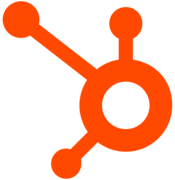
Best Data Quality Software 2025
What is Data Quality Software? Data quality software tools are used by businesses to improve the consistency, accuracy, and overall completion of their data by analyzing sets of information and identifying any inaccuracies or gaps. Common categories for these tools include data observability, data cleansing, data auditing, and data migration. They are used heavily by data analysts, data scientists, and various Operations personnel for sales and marketing departments. Data quality software helps ...
We’ve collected videos, features, and capabilities below. Take me there.
All Products
Learn More about Data Quality Software
What is Data Quality Software?
Data quality software tools are used by businesses to improve the consistency, accuracy, and overall completion of their data by analyzing sets of information and identifying any inaccuracies or gaps. Common categories for these tools include data observability, data cleansing, data auditing, and data migration. They are used heavily by data analysts, data scientists, and various Operations personnel for sales and marketing departments.
Data quality software helps improve an organization's data reliability, which is essential to providing a solid basis for effective decision-making. By detecting anomalies across multiple data sources, these tools help businesses achieve higher data completion. For instance, these tools may automatically correct typos, flag bad data entries, and view dependencies in a data stack. With the emergence of big data strategies, data quality improvement has become an essential process. Investing in these types of software is becoming a more popular course of action across business types.
With data quality tools becoming more used within organizations, it’s important to understand the strategies they use. They include:
- Parsing and standardizing data: Data is broken up into multiple structured elements and then each element is standardized according to predefined rules.
- Matching and merging data: Data records that look similar are automatically flagged as possible matches, and if they are found to be matches the records are then merged.
- Case management: Some data records will be found to be incomplete or erroneous. This problematic data is automatically flagged and placed in a queue where it can be investigated and remediated later.
- Address Verification: Validating address formats and verifying that the address represents a real physical location.
Data Quality Software Features
Some of the most common features found within data quality software products include:
- Connectivity to multiple data sources
- Data profiling and auditing to help find anomalies, hidden relationships between data elements
- Seamless integration with Master Data Management (MDM) systems
- Parsing and standardization of data elements according to pre-defined rules
- Match and merge capability
- Data format and valid address checking
- Address validation
Data Quality Software Comparison
Consider these factors when comparing data quality software:
- Scalability: For some products, the number of users and concurrent processes you plan to have within the system could cause some products to slow down their performance. If you plan to have multiple users, be sure the data quality tool is able to function at its normal performance under increased stress.
- Ease of Use: The learning curve for some of the products may be steep for some developers if they aren’t already experienced using the kind of coding some of the tools contain. Many reviews highlight how easy to use or accessible a given data quality tool is to developers and business users.
Start a data quality software comparison here
Pricing Information
Most data quality software vendors do not provide transparent pricing information. Pricing can depend on factors like the number of data sources used and how many features are included in the product. For customized pricing, be sure to contact the vendor directly. Businesses should expect to pay for a data quality tool via a monthly subscription.
Data Quality FAQs
What businesses benefit most from data quality software?
Are there any free or open source data quality tools?
How can I best utilize a data quality tool?
What does data quality software do?
What are the benefits of using data quality software?
Some key benefits to note for businesses when using data quality software include:
- Availability of high-quality data for business intelligence projects and master data management.
- Reduced time to implement data governance or compliance audits.
- Consolidated views of customers and households enabling more effective cross and upselling.
- Provision of research data for fraud detection and planning.























